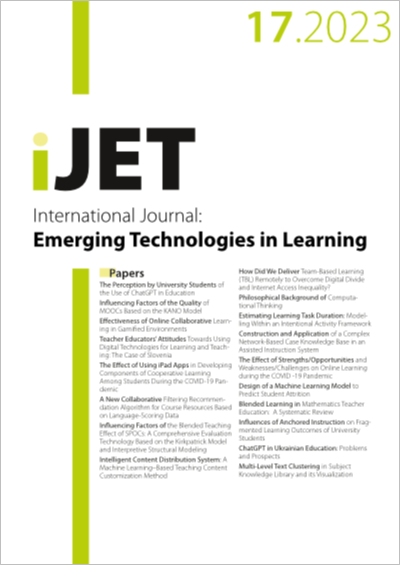Influencing Factors of the Quality of MOOCs Based on the KANO Model
DOI:
https://doi.org/10.3991/ijet.v18i17.42507Keywords:
MOOC, Influencing factors of course quality, KANO Model, Online comment analysis, Quality improvementAbstract
Massive open online courses (MOOCs) represent a new online course and teaching mode, offering targeted instruction and timely services to learners. They have become a key direction for reforming online education. Although MOOCs have experienced significant growth in recent years, the quality of courses published on platforms varies greatly, and scientific quality evaluation mechanisms are lacking. Existing studies on online course quality have primarily relied on questionnaire survey data. In the online environment, an abundance of comment data on platforms reflects learners’ perceptions of course quality, and an analysis mode based on learning comments can address the limitations of questionnaire surveys effectively. In this study, comment texts from learners on Chinese university MOOC platforms were chosen as research data. The influencing factors of online open-course quality were analyzed using the KANO model combined with the ordinal Logit regression method. Results demonstrate that system features, video production, teaching level of teachers, usefulness of teaching content, and comprehensiveness of teaching content are essential quality factors. Course-supporting information is considered an expectant quality factor. Teachers’ teaching style and course interaction are categorized as engaging quality factors. This study provides valuable insights for improving MOOC quality in Chinese universities.
Downloads
Published
How to Cite
Issue
Section
License
Copyright (c) 2023 Hui Chen

This work is licensed under a Creative Commons Attribution 4.0 International License.



